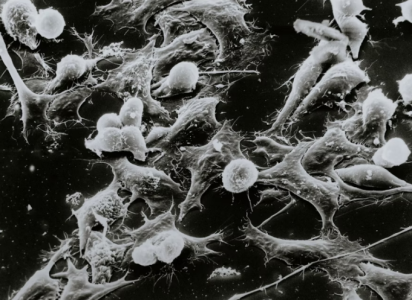Study finds these 6 foods may help reduce risk of multiple cancers
- Replies 0
Some research manages to make waves not by introducing something flashy or entirely new, but by quietly challenging long-held assumptions about the everyday choices we make—especially when it comes to food.
A recently released study is doing just that, raising eyebrows by drawing intriguing connections between common dietary patterns and the kind of long-term health outcomes that don't always show up right away.
It’s not wrapped up in trendy buzzwords or the latest superfood hype, but instead focuses attention on something surprisingly ordinary that might already be sitting in your fridge.
And for a growing number of people, it’s becoming a compelling reason to reexamine a particular food group that continues to spark debate in kitchens, grocery aisles, and nutrition circles alike.
A scoping review published in the European Journal of Clinical Nutrition has found compelling evidence connecting dairy consumption to a reduced risk of several cancers.
Researchers analyzed 281 associations from a broad range of studies, revealing that both high-fat and low-fat dairy may offer protective effects.
Specifically, yogurt and fermented dairy products stood out for their potential role in lowering risks for bladder, breast, and colorectal cancers.
The review also noted connections between dairy and reduced risks of heart disease, type 2 diabetes, and obesity.

The team grouped 29 identified health outcomes into categories that included cardiovascular health, cancer, weight, mortality, and other chronic issues.
Each type of dairy—milk, cheese, yogurt, and fermented products like kefir—was evaluated independently.
Among all the types, fermented dairy showed the most consistent positive outcomes, particularly for heart and cancer-related concerns.
Importantly, very few studies showed negative associations, with only a small number linking dairy to increased risks for cancers like liver, ovarian, and prostate.
When broken down, the findings became even clearer. Milk had 13 positive associations, most often with reduced risks of oral, bladder, and colorectal cancers, while cheese showed potential benefits for heart health and some cancer types.
Yogurt emerged as one of the strongest players, with over two dozen studies linking it to better outcomes for heart disease, diabetes, and several cancers.
Fermented dairy had the highest consistency in positive outcomes, and was never strongly associated with increased risks in the data reviewed.
The review also looked at whether fat content in dairy made a difference, comparing high-fat and low-fat options.
Most studies found little to no difference in health outcomes between the two, and some even linked full-fat dairy to better heart health.
Only two studies pointed to a higher heart disease risk tied to full-fat milk, while most others either found no connection or a reduced risk of certain cancers.
These findings challenge common assumptions that full-fat dairy should be avoided for health reasons. Of course, the study comes with limitations—it’s based on previously published research, which varies in quality and may not account for lifestyle or genetic factors.
Moreover, the study identifies correlations, not causes, so while dairy consumption may coincide with better health outcomes, it’s not guaranteed to cause them.
Still, the weight of the evidence is strong enough to suggest that dairy—especially fermented types—can be part of a smart, health-forward diet.
The results are especially notable given how often dairy’s health role is debated in popular wellness culture. So what does this mean for your daily routine?
Adding a cup of yogurt or kefir to your breakfast, swapping out a snack for cheese and whole grain crackers, or using milk in your coffee are simple but potentially impactful changes.
For those who are lactose-intolerant or dairy-free, fermented dairy may be easier to digest and worth exploring under a doctor’s guidance.
The goal isn’t to overhaul your eating habits, but to think critically about what small additions may have long-term benefits. And with two to three servings of dairy per day being the general recommendation, many of us are still falling short.
Read next:

How do you feel about dairy’s role in your diet? Do these new findings change the way you think about milk, yogurt, or cheese? Are you more likely to include fermented dairy in your meals going forward? Share your thoughts in the comments—we want to know what you’re keeping in your fridge.
A recently released study is doing just that, raising eyebrows by drawing intriguing connections between common dietary patterns and the kind of long-term health outcomes that don't always show up right away.
It’s not wrapped up in trendy buzzwords or the latest superfood hype, but instead focuses attention on something surprisingly ordinary that might already be sitting in your fridge.
And for a growing number of people, it’s becoming a compelling reason to reexamine a particular food group that continues to spark debate in kitchens, grocery aisles, and nutrition circles alike.
A scoping review published in the European Journal of Clinical Nutrition has found compelling evidence connecting dairy consumption to a reduced risk of several cancers.
Researchers analyzed 281 associations from a broad range of studies, revealing that both high-fat and low-fat dairy may offer protective effects.
Specifically, yogurt and fermented dairy products stood out for their potential role in lowering risks for bladder, breast, and colorectal cancers.
The review also noted connections between dairy and reduced risks of heart disease, type 2 diabetes, and obesity.

Study finds these 6 foods may help reduce risk of multiple cancers. Image source: National Cancer Institute / Unsplash
The team grouped 29 identified health outcomes into categories that included cardiovascular health, cancer, weight, mortality, and other chronic issues.
Each type of dairy—milk, cheese, yogurt, and fermented products like kefir—was evaluated independently.
Among all the types, fermented dairy showed the most consistent positive outcomes, particularly for heart and cancer-related concerns.
Importantly, very few studies showed negative associations, with only a small number linking dairy to increased risks for cancers like liver, ovarian, and prostate.
When broken down, the findings became even clearer. Milk had 13 positive associations, most often with reduced risks of oral, bladder, and colorectal cancers, while cheese showed potential benefits for heart health and some cancer types.
Yogurt emerged as one of the strongest players, with over two dozen studies linking it to better outcomes for heart disease, diabetes, and several cancers.
Fermented dairy had the highest consistency in positive outcomes, and was never strongly associated with increased risks in the data reviewed.
The review also looked at whether fat content in dairy made a difference, comparing high-fat and low-fat options.
Most studies found little to no difference in health outcomes between the two, and some even linked full-fat dairy to better heart health.
Only two studies pointed to a higher heart disease risk tied to full-fat milk, while most others either found no connection or a reduced risk of certain cancers.
These findings challenge common assumptions that full-fat dairy should be avoided for health reasons. Of course, the study comes with limitations—it’s based on previously published research, which varies in quality and may not account for lifestyle or genetic factors.
Moreover, the study identifies correlations, not causes, so while dairy consumption may coincide with better health outcomes, it’s not guaranteed to cause them.
Still, the weight of the evidence is strong enough to suggest that dairy—especially fermented types—can be part of a smart, health-forward diet.
The results are especially notable given how often dairy’s health role is debated in popular wellness culture. So what does this mean for your daily routine?
Adding a cup of yogurt or kefir to your breakfast, swapping out a snack for cheese and whole grain crackers, or using milk in your coffee are simple but potentially impactful changes.
For those who are lactose-intolerant or dairy-free, fermented dairy may be easier to digest and worth exploring under a doctor’s guidance.
The goal isn’t to overhaul your eating habits, but to think critically about what small additions may have long-term benefits. And with two to three servings of dairy per day being the general recommendation, many of us are still falling short.
Read next:
- Miracle or menace? Discover the daily drink that slashes bowel cancer risk by 17%–and the one that hikes it up!
- Could this simple at-home test reveal hidden cancer before it's too late?
Key Takeaways
- This scoping review analyzed 281 associations between dairy and health, highlighting yogurt and fermented dairy as the most beneficial.
- Fermented dairy was linked to lower risks of heart disease, stroke, and cancers like bladder and breast, with very few studies showing negative effects.
- The research found little difference between full-fat and low-fat dairy in terms of health outcomes, challenging previous assumptions.
- Most studies suggested dairy may support better heart health, reduced diabetes risk, and lower rates of certain cancers, though more research is needed to confirm causation.






